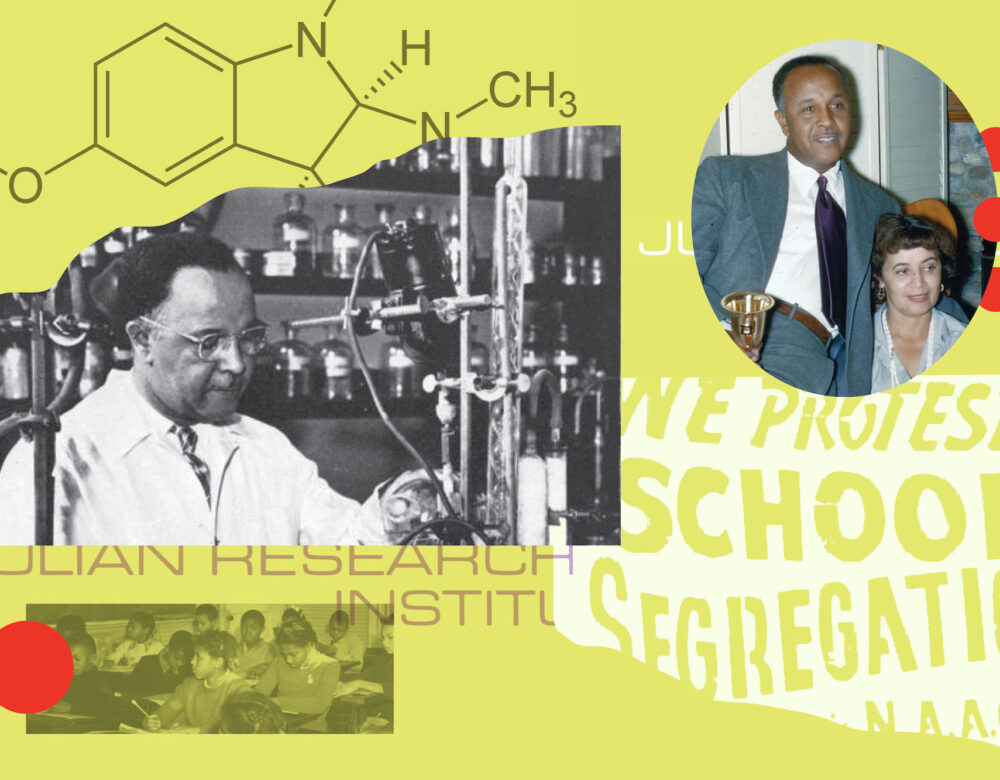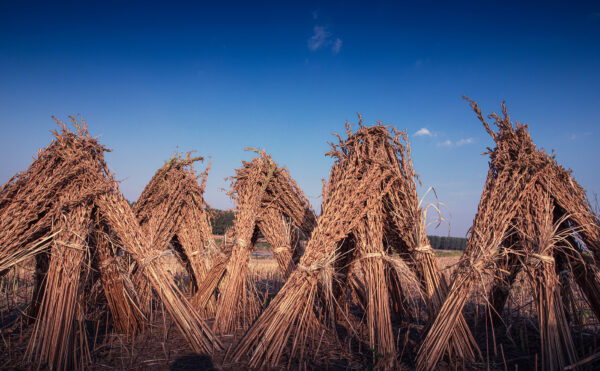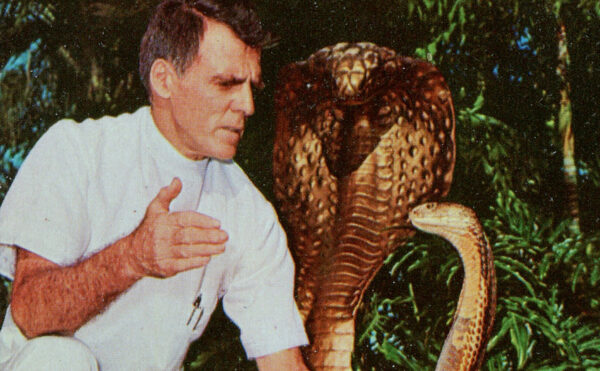There is a letter written on February 3, 1956, by Black American chemist Percy Julian to the president of the American Chemical Society, John Warner.
In it, Julian condemns the organization for distributing a list of “Hotels for Colored Persons” for an upcoming conference in Dallas. Julian is direct and clear about his feelings; he rightly excoriates his scientific community for yielding so easily to the “stupidity” of Southern segregation. He writes,
It appears to me that the time has come when the great array of capable scientists enrolled in our Society can no longer close their eyes to the “oughtness” involved in a ridiculous American situation like this.
He invokes liberty and democracy and declares the existence of the list a point of embarrassment—a failure.
It’s a letter worth reading.
When I first read it, I categorized it quickly. I’m familiar with the history of civil rights and race relations in this country. I’m familiar with Percy Julian too. I learned about him in school as one of the famous Black American scientists who overcame great adversity to become a successful chemist and entrepreneur. His letter fit a mold: a moment of inspiring bravery—a great man facing down wrongs we thankfully have long since moved on from.
And certainly, those things are true. Percy Lavon Julian was a trailblazer in chemical synthesis, and his life was marked by moments of bravery.
In 1935 he and his team synthesized physostigmine, a glaucoma treatment that until then was only available from a plant called the Calabar bean. It was an incredible accomplishment for a relatively unknown researcher. The project took three years to complete, and Julian and his team did it without the benefit of modern analytical methods such as mass spectrometry. But earning credit for the discovery took courage; it meant calling out the errors of respected English chemist Robert Robinson, who would later be knighted and awarded a Nobel Prize. Any mistake of his own might have ruined Julian’s career.
Being intelligent and capable did not guarantee Julian’s humanity in a racist society, nor his right to fully participate in the thing he loved: science.
Instead, the physostigmine work established Julian’s reputation, and he went on to develop lucrative methods for producing progesterone and other sex hormones, and after that synthesized cortisone and hydrocortisone, steroids used to treat rheumatoid arthritis and many other ailments. His list of accomplishments is long; Julian possessed a great mind for both science and business.
But as his letter to Warner made clear, being intelligent and capable did not guarantee Julian’s humanity in a racist society, nor his right to fully participate in the thing he loved: science.
The Julian I discovered in this letter sat at the intersection of the story of race in this country and in science—a tale of perseverance so powerful as to leave you breathless and, simultaneously, a textbook example of racism stifling potential. Our chief archivist pointed this out to me, and once he did, I could not unsee it. Being excellent did not protect Percy Julian. And that felt startlingly familiar.
Wondering what Julian thought about his experience, I found “On Being Scientist, Humanist, and Negro,” an essay he wrote for a 1969 anthology called Many Shades of Black. It was a surreal read for me—a Black woman working at the intersection of science and the humanities.
Julian begins the essay by recounting a long-standing academic schism between the sciences and humanities (or “humanism” as he calls it). He’s both amused by the barbs the opposing camps lob at one another and empathetic to the anxieties of humanities professors who fear the growth of science education will displace the liberal arts. (It’s a battle I recognize from my own work, though one thankfully becoming less common as the importance of placing science in its social context gains greater acceptance.) After a few paragraphs his commentary takes a purposeful turn:
Julian goes on to reflect on his youth, the experience of becoming a scientist, and the cold welcome he and other Black practitioners received when trying to make their way into the field.
Brilliant as he was, it’s a marvel Percy Julian made it.
Julian’s grandparents had been slaves. He grew up in Montgomery, Alabama, where the only high school available to him was unaccredited. But his parents had dreams for their children, and in 1916 Julian was accepted to DePauw University, one of the few primarily white colleges to accept Black students. Before Julian’s departure, his father, a railway clerk, sent him a letter:
His father’s idealism clashed with the reality of life in Greencastle, Indiana. Julian struggled to find a place to live and eat. He eventually lived in the attic of a fraternity house where he tended the furnace and waited tables. To keep his place at DePauw, he carried a double load of classes his first two years—high school prerequisites along with his freshman and sophomore courses. Despite these challenges, Julian thrived academically. He graduated valedictorian in 1920; his classmates assumed he would be working in a Harvard lab the next fall.
Being intelligent and capable did not guarantee Julian’s humanity in a racist society, nor his right to fully participate in the thing he loved: science.
In his essay Julian recounts the “week of anxious waiting” for his graduate school placement. He stood by as his lab mates received their acceptance letters. Finally, he approached his advisor, who, with some regret, showed Percy the many rejection letters he had received.
Julian was bright and capable, but he was also Black, and the country’s graduate schools saw no future for him in chemistry, neither in an academic lab nor a professional one. They advised him to take a teaching position at a Southern Black college—a job that didn’t require a PhD.
These men claimed that they were doing Julian a favor—sparing him years of futility and frustration. In the end, his professor secured him a place at Fisk University in Nashville. Julian describes the devastation of that moment: “There went my dreams and hopes of four years, and as I pressed my lips to hold back the tears, I remembered my breeding, braced myself, and thanked him warmly for thinking of me.”
This scene struck me. Julian had cleared every hurdle, done everything expected of him—and then some. It is no exaggeration to say he was exceptional. And yet, his stellar academic performance was not enough to overcome the prejudices of the world he lived in.
My parents had dreams for me too. My father grew up in South Carolina in the 1930s, the son of sharecroppers. He had, at most, an 8th-grade education. My mother grew up in the Northeast in the 1940s. She had to leave high school but eventually got her GED. My parents wanted better opportunities for me than they had themselves, so like Julian’s parents they sent me to a primarily white school. And I did well. I took honors and AP courses and earned good grades. My trajectory seemed set.
During my junior year, I met with a guidance counselor to discuss my future; I expected to talk through college applications and scholarship opportunities. Instead, he warned me how hard college was, how rarely people like me succeeded, and how I should consider a backup plan.
I was devastated but also confused. The whole ride home on the bus I kept thinking: This must be a mistake. Maybe he didn’t see my grades.
When we paint Black achievement solely as victory over incredible odds, we inadvertently let the society and institutions responsible for that oppression off the hook.
I cried to my mother afterward. I understood that racism was not always overt, and I had plenty of experience with the way a subtle turn of phrase or an “innocent” observation could demean or humiliate. But I also believed that through effort and discipline—through perfection—I could get people to look past my skin color. It was a brutal lesson. I could be excellent, and it might not be enough.
As an adult, I can appreciate how difficult it was for my mother to soothe me, encourage me, and still make sure I was prepared for how the world would treat me. As a teenager, I slammed my door and flopped on my bed and declared that I’d never try to do anything ever again.
But I did try to do something again, and my mother took over for my guidance counselor and together we taught ourselves what we needed to know about applying to colleges. She used to have a saying for me, “by hook or by crook,” which essentially means “by any means necessary.” If there is no door, find a window. If there is no window, find a crack in the wall you might be able to slip through. I took her advice and moved forward.
Julian pushed forward too. He took the position at Fisk and found that he enjoyed teaching and the challenge of staying one foot ahead of his brightest students. But he didn’t give up on his dreams of working in the lab. He kept clearing hurdles. He secured a grant that gave him admission to Harvard, where he earned a master’s degree but was blocked from earning a PhD. So he leapt an ocean, earning his degree at the University of Vienna.
For the rest of his career, Julian continued to navigate the obstacles a racist society threw in front of him. We celebrate his success in doing so because it’s astounding. It’s also a narrative we’re partial to. We are enamored of tales of self-made heroes, who achieve success through determination and independence. Similarly, we tell stories of the lone scientist in a lab, who catapults over obstacles through sheer willpower and genius. These narratives engender pride, self-esteem, empowerment—undoubtedly good things, but these narratives also have shortcomings.
Julian was aware of narrative’s dual nature. Perhaps as analog for his own experience, Julian writes about one of the heroes who inspired him to pursue chemistry and apply to college, St. Elmo Brady, the first Black man to receive a PhD in chemistry.
Brady’s success in receiving the degree from the University of Illinois was celebrated and highlighted in the Black newspapers of the day. Julian recalls hearing the news himself, in the summer of 1916 when he was applying for college. He writes, “Brady’s accomplishment strengthened my determination to attend college.”
The PhD was an incredible accomplishment. And yet, even after earning it, Brady found his ambitions blocked. As Julian tells it, Brady struggled to find a job suited to his talent. He was denied access to peer communities, libraries, and labs in a world built on segregation.
When we paint Black achievement solely as victory over incredible odds, we inadvertently let the society and institutions responsible for that oppression off the hook. We put the onus of solving racism on the oppressed.
And herein lies the problem with glorifying lone scientific geniuses and self-made heroes. It’s simply not how the world works, and it’s certainly not how science works.
These stories overlook the importance of networks and institutions to all forms of human success. Whether it was natural philosophers corresponding about the recipe for the philosophers’ stone in the 17th century or research assistants who helped run a Nobel Prize−winning scientist’s lab gathering for a summer social, science is, and always has been a community. Discovery is buoyed by associations of peers; research is supported by materials and equipment. We say “it takes a village” to raise a child, but it also takes one to move science forward.
Julian recognized this fact. He declares his frustration with the system of segregation, writing that racism had “destroyed the greatest possibility at that time of getting Brady and others on the scientific creative roster.” The responsibility for changing this system, he argued, was not on Brady but on formal institutions. He pointed out that Brady’s alma mater or another major university could have not only inspired “hundreds of intellectually hungry Brady admirers,” but made a real difference in Brady’s career by offering him a professorship and welcoming him into its community of fellow scientists.
Julian points to the myriad ways Black students’ pursuit of science was hampered by systemic racism, from being denied admission to schools, to having their schools defunded by racist legislation that upheld segregation, to being discouraged from trying to go too far in pursuit of their passion. From his perspective, if we focus only on Brady’s achievements, it hides the tragedy of a genius forced to constantly navigate around the barriers of racism.
His point is well taken. It is an illusion that overcoming racism is something that can be done alone. When we paint Black achievement solely as victory over incredible odds, we inadvertently let the society and institutions responsible for that oppression off the hook. We put the onus of solving racism on the oppressed.
I am no longer that teenager who had her heart broken in a guidance counselor’s office. But as I reflect, I can’t help but wonder if reading “On Being Scientist, Humanist, and Negro” back then might have changed my experience. Maybe it could have helped me make sense of the hurt I felt. Maybe I would have felt less like the failure was mine. Julian believed individual students could overcome this country’s racist hurdles, but he also believed only its institutions had the power to make sweeping change. He called on them to do that work. And what’s more, he had faith that his community would.
As he wrote to Warner in 1956, “I sincerely feel that there must be thousands of chemists in the ranks of our Society who—like the members of my staff of all races—will boycott such a meeting and refuse to participate in this insult to the individual dignity of their fellow Americans of color.”
Like Julian, I have hope too. I learned a lot about the importance of collecting diverse science stories from talking to my archivist colleague. This work matters not just for researchers, but also for storytellers like me. Preserving the history of Black scientists and researchers from other marginalized communities helps us to push beyond the comforting historical narrative. It allows us to celebrate the incredible achievement of someone like Percy Julian, and helps us make science a more welcoming place for the Percy Julians yet to come.
This article is part of Innate: How Science Invented the Myth of Race, a podcast and magazine project that explores the historical roots and persistent legacies of racism in American science and medicine. It is made possible in part by a major grant from the National Endowment for the Humanities: Democracy demands wisdom.




